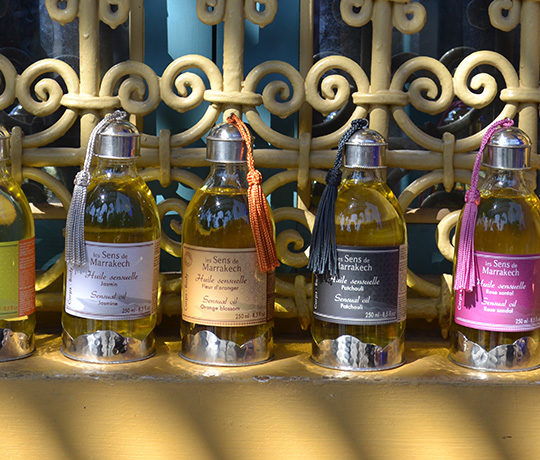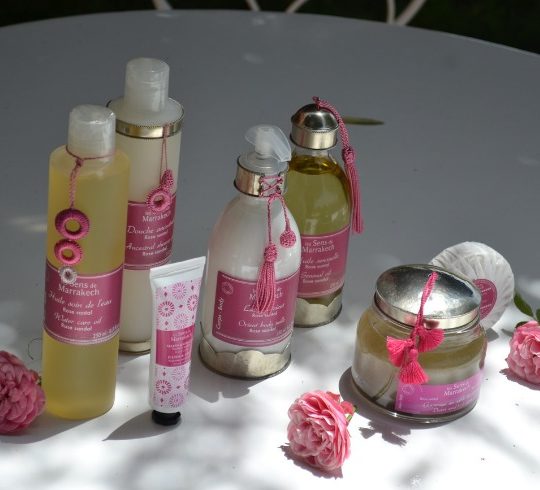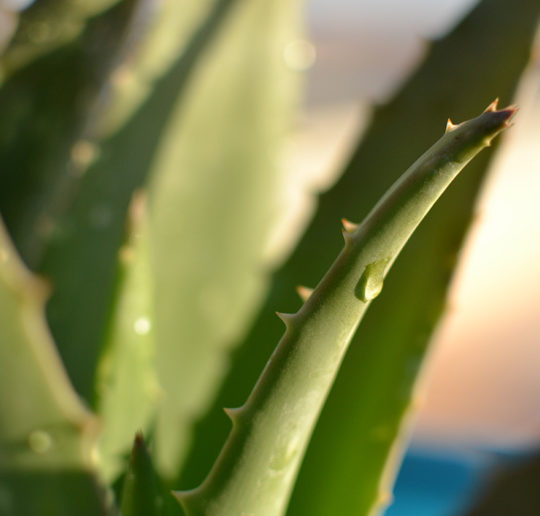The first step to an effective and appropriate skincare routine is to know your skin type and its specific needs.
Les Sens de Marrakech has defined 5 skin types according to their water and lipid balance. These are normal skin, mature skin, dry and very dry skin, combination and oily skin, and sensitive skin. Your skin’s balance varies according to your age, state of health, lifestyle, climate, pollution and so on.
It’s very important for Les Sens de Marrakech to enable you to choose the products that best correspond to your skin’s specific needs, according to its type and condition.
Whatever your skin type, here’s a practical guide to help you choose the most suitable products.
How is a skin type defined?
The definition of a skin type is generally based on specific characteristics that determine the skin’s needs and reactions to different factors. The main skin types are generally classified according to characteristics such as sebum production, sensitivity, texture and the presence of specific problems.
Here’s a brief description of the main skin types:
- Normal skin: Balanced, neither too oily nor too dry. It has a smooth texture and does not present any major problems.
- Mature skin: Subject to signs of aging, such as wrinkles, loss of firmness and elasticity.
- Dry and very dry skin: Lack of hydration, may be prone to redness, flaking and feelings of tightness.
- Combination and oily skin: Combination of dry and oily areas on the face. Generally, the T-zone (forehead, nose, chin) is oilier, while the cheeks may be drier. Tendency to produce excess sebum, which can lead to enlarged pores, blemishes and excessive shine.
- Sensitive skin: Reacts easily to irritation, aggressive products or climatic changes. May experience redness, tingling or discomfort.
To determine your skin type, carefully observe its reactions to seasonal changes, skincare products and environmental factors.
Recognize normal skin type
Normal skin is generally balanced, neither too oily nor too dry. Here are some characteristics that can help you recognize normal skin type:
- Balanced texture: Normal skin has an even, smooth texture, without excessively oily, dry or rough areas.
- Pore size: Are neither too dilated nor too constricted. They are generally of medium size.
- Hydration: Well hydrated without being greasy. It does not show dry areas or signs of excessive hydration.
- Lack of sensitivity: Less prone to irritation, redness or allergic reactions. She generally responds well to skin care products.
- Balanced complexion: Has an even, healthy complexion, without areas of redness, hyperpigmentation or significant discoloration.
- Absence of excessive shine: It does not present excessive shine, especially in the T zone (forehead, nose, chin).
- Elasticity: Has natural elasticity and does not show signs of excessive sagging.
Products suitable for normal skin
If your skin has these characteristics, it is likely that it is normal. We offer a range of products suitable for all skin types. They are formulated to gently cleanse, hydrate and protect the skin while providing it with the nutrients it needs to stay healthy and glowing.
- Oh… Micellar: Fresh make-up remover water enriched with prickly pear seed oil, argan oil and Aloe Vera.
- Make-up remover: Light emulsion that gently eliminates all traces of impurities and cleanses the skin while protecting it.
- Pure Melting Scrub: On a delicious base of lactescent jelly, it erases dead cells, refines the skin texture and the complexion becomes radiant.
- Cleansing Glove face: This ultra-soft glove is ideal for effectively cleaning the face thanks to its micro-relief fibers. It eliminates all traces of pollution and excess dead skin.
The range of products for normal skin is composed on average of 97% ingredients of natural origin. It is formulated with extracts of argan, prickly pear seed oil and Aloe Vera.
Recognize mature skin type
Mature skin generally has specific characteristics that require special attention. Here are some common signs to recognize mature skin type:
- Wrinkles and fine lines: She tends to develop fine lines and wrinkles, especially around the eyes, mouth and on the forehead.
- Loss of firmness: Collagen production decreases with age, leading to a loss of firmness and elasticity in the skin. This can result in sagging skin.
- Uneven pigmentation: Dark spots and other pigmentation problems may appear with age.
- Uneven texture: Mature skin may become rougher and less smooth due to decreased natural exfoliation.
- Dryness: Mature skin often tends to be drier due to decreased sebum production.
- Enlarged pores: With age, pores may appear larger due to a loss of skin firmness.
- Dark circles and puffiness: Dark circles under the eyes and bags can become more pronounced over time.
How to take care of mature skin?
To care for mature skin, it is recommended to use skin care products specifically formulated to meet the needs of this skin type.
Here are specific solutions for mature skin, such as our serums and creams enriched with prickly pear seed oil to bring strength and energy to sagging and dull skin.
- Cream Ages & Wonders : Global anti-aging treatment with a plumping effect, which acts instantly thanks to 5 super moisturizers and a mouthful of active ingredients such as prickly pear seed oil, hyaluronic acid, argan oil and many more.
- Prickly pear seed oil: This wonder of nature offers a rejuvenation to mature skin, by boosting cell renewal thanks to anti-oxidant vitamins E and essential fatty acids.
- Eyes of Emotion: Fresh and light gel cream which relaxes the eyes, reduces wrinkles and crow’s feet, limits swelling of the eyelids and preserves the firmness of the eye contour ‘eye.
These products are composed on average of 96% ingredients of natural origin and are formulated with very effective active ingredients such as prickly pear seed oil, xylitol and hyaluronic acid.
To take care of your mature skin and preserve it, use suitable products enriched with active ingredients and protect it from UV rays during exposure to the sun with adequate sun protection.
How do I know if I have dry and/or very dry skin?
Dry skin is characterized by a rough texture, tightness, flaking and sometimes redness. Here are some signs that can help you recognize dry skin type:
- Tightness and discomfort: If this is the case especially after cleansing, it may be dry skin.
- Roughness: Dry skin often has a rough texture and can appear dull.
- Scaling: Scaling, the presence of small pieces of dead skin that come off the surface of the skin, is common among people with dry skin.</ li>
- Lack of elasticity: Dry skin can lack elasticity and appear less supple.
- Redness: Some people with dry skin may also develop redness, especially around dry areas.
- Inconspicuous pores: Pores may appear less visible on dry skin compared to oily skin.
What product should I use to combat dry skin?
Les Sens de Marrakech offers a range of products specially formulated to deeply hydrate and nourish dry skin with beneficial nutrients. These are argan oil, shea butter, date extract and hyaluronic acid.
- La Belle Crème : Full of ultra-effective nutrients such as shea and mango butter and vegetable oils, this soft cream provides the face with extreme comfort all day long.
- Fresh Emulsion: A more fluid version of La Belle Crème, it acts instantly for a sensation of intense and lasting hydration. Quickly absorbed thanks to its fine texture, it also constitutes an excellent makeup base.
- Summer Radiance Scrub and Mask: For a luminous and flawless complexion, it gently exfoliates thanks to its argan grains and its fluffy cream texture. The massage-exfoliation action frees the skin from impurities while the extracts of dates, argan and hyaluronic acid nourish.
- Nourishing Mask Break: Generous cocktail of active ingredients for this cream mask with a delicious texture that envelops the driest skin in a cocoon of softness.
The range of products for dry and very dry skin consist of an average of 97% ingredients of natural origin and contain date extracts and hyaluronic acid.
To take care of your dry skin in the best possible way, avoid using alcohol-based products, harsh soaps or strong perfumes.
Recognize combination and oily skin type
Combination and oily skin is characterized by overproduction of sebum, which can lead to several distinctive signs. Here are some indicators to recognize oily skin type:
- Excessive shine: a shiny appearance, especially on the forehead, nose and chin (T zone).
- Enlarged pores: Pores may appear enlarged due to excess oil
- Acne: More likely to develop pimples, blackheads and comedones due to excessive oil production, which can clog pores.
- Oily feel: May feel greasy or oily to the touch, particularly at the end of the day.
- Propensity for makeup shine: Cosmetic products, such as foundation and powder, may have difficulty staying put on oily skin due to sebum production .
- Increased susceptibility to acne: More prone to acne, including inflammatory acne breakouts.
- Occasional rashes: Occasional rashes, including occasional breakouts, may occur on oily skin.
How to take care of oily skin?
To take care of oily skin, here is a range of products with green clay, ginger and tea tree extracts. They reduce shine, refine grain and tighten pores.
- Matte and Pure Gel Cream: With its fresh, non-greasy and non-sticky gel texture, it penetrates instantly and creates a smooth, matte finish all over the face and particularly on the T-zone.
- Purifying Mask Break : Creamy mask that clarifies the complexion for healthy, pure skin. Refined and smooth, the complexion is mattified and shine-free.
These oily products are composed of on average 98% ingredients of natural origin and are formulated with essential oils of ginger and tea tree, clay and a complex of burnet rhizomes, ginger and cinnamon bark.
It is also recommended to avoid products that are too harsh, as this can stimulate excessive sebum production in response to excessive drying of the skin.
Recognize sensitive skin type
Sensitive skin is characterized by increased reactivity to various factors, which can manifest itself as redness, itching, tingling sensation or irritation. Here are some signs that can help you recognize sensitive skin type:
- Frequent redness: Blushes easily, even in response to mild stimuli (rubbing, temperature changes, application of products).
- Stinging or burning sensation: Tingling, burning or itching sensations, sometimes without apparent cause.
- Reactions to products: Reacts negatively to skin care products, cosmetics or detergents. This leads to redness, irritation or rashes.
- Visible blood vessels: Visible blood vessels may be present on sensitive skin, contributing to its reddish appearance.
- Reactions to temperature changes: They can trigger skin reactions in people with sensitive skin.
- Dryness: May be prone to dryness, which may contribute to feelings of discomfort.
- Reactivity to allergens: Such as pollen, chemicals or perfumes.
Here are the products that help improve sensitive skin
To take care of your sensitive skin, use gentle, hypoallergenic and fragrance-free care products. Here is what Les Sens de Marrakech offers you:
- Aloe Sorbet Cream (only available in Morocco at the moment): Restores luminosity to stressed skin. It helps rebuild a protective barrier to avoid reactive outbreaks.
- Soothing Mask Break : Formulated with Aloe Vera extracts and pine needle extracts, and white kaolin clay. The latter absorbs impurities for radiant skin.
These products consist of on average 96% ingredients of natural origin. In addition, their formulas contain argan oil, pine needle extracts, Allantoin and Aloe Vera.
Avoid harsh ingredients and opt for formulations designed specifically for sensitive skin. Also avoid extreme exposure to climatic conditions. Prefer to use gentle sunscreens, testing new products on a small area of skin before widespread use.
In conclusion, recognizing your skin type is essential for choosing appropriate skincare products and implementing a suitable routine. Different skin types have distinct characteristics that require specific approaches. (Read as well how to choose the right scent for your personality).
It is crucial to pay attention to the signs and symptoms characteristic of each skin type.
In addition to recognizing your skin type, consider other factors such as diet, hydration, sun exposure and daily care habits.
So, everyone can take appropriate steps to maintain healthy, balanced and radiant skin throughout their life.




